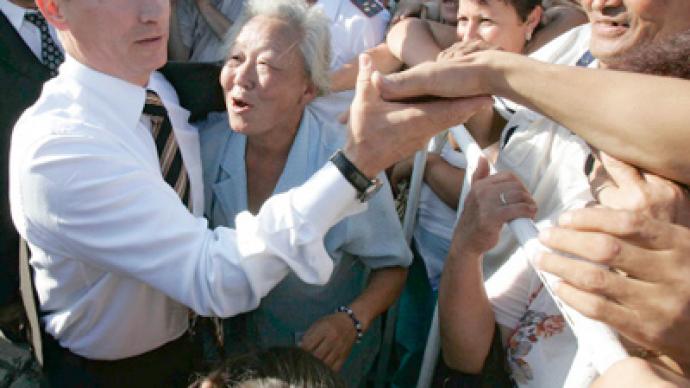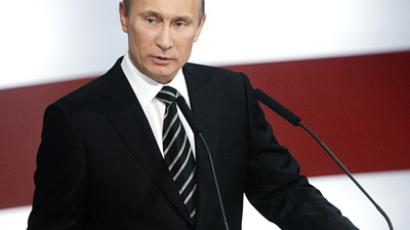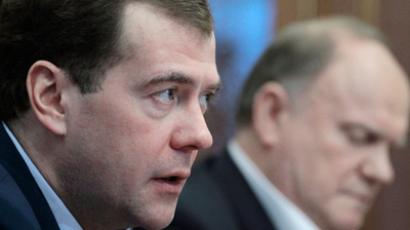Putin’s reception offices in regions to direct Popular Front’s activities

The prime minister’s reception offices will co-ordinate its work with United Russia regional braces during the parliamentary election campaign.
The offices have been created to accept people’s complaints in the regions. Now they will co-ordinate the activities of the Popular Front’s branches, according to United Russia officials. The idea to establish the front was floated by Prime Minister Vladimir Putin on May 6 during a conference of the ruling party, which he heads.The regional offices of the front are being organized on the platform of Putin’s public reception offices, head of United Russia’s executive body in the Orel Region, Andrey Uvarov, told Kommersant daily. The offices’ heads will co-ordinate the front’s activities, like United Russia’s regional head directs the party’s work.United Russia’s electoral headquarters are being also transferred to the front’s offices, earlier reports said. The information on the new, more important role Putin’s reception offices will play has been confirmed by officials in other regions, including the Saratov, Volgograd and Leningrad Regions. In the Voronezh Region, the head of United Russia’s regional branch, Irina Trankova, is expected to leave her current position and head one of Putin’s reception offices.Heads of reception offices will be responsible for organizational work of the Popular Front. The new structure will include United Russia branches and public organizations that share the ruling party’s political platform. Representatives of these organizations may receive a quarter of seats on United Russia’s party list for elections to the State Duma scheduled for December. The candidates will be selected during primaries.“The whole agenda is being built around Putin,” Evgeny Minchenko, the director of International Institute for Political Expertise, told Kommersant. But this does not mean that the United Russia is being weakened, he added, because the front may benefit from “the competition” between Putin’s reception offices and the party’s branches.The prime minister is visiting one such office in the Pskov Region on Monday, meeting with representatives of public organizations. Meanwhile, the front branches are being created in other regions. In the Krasnodar Region, the new organization will unite trade unions, youth and veteran organizations and businessmen, Governor Aleksandr Tkachev said. They will have an opportunity not only to be heeded, but also “to take part in adopting key decisions as equal partners.” Late last week, Putin approved the creation of a new think tank supposed to develop an election program for both the front and Unite Russia. The Institute of Socio-Economic and Political Studies will be headed by Nikolay Fedorov, a member of the parliament’s upper house and former head of the republic of Chuvashia. According to Fedorov, the new structure will attract experts from Moscow and regions. He also stressed that the Popular Front “has no right to propose populist and unrealistic ways of solving problems.”














